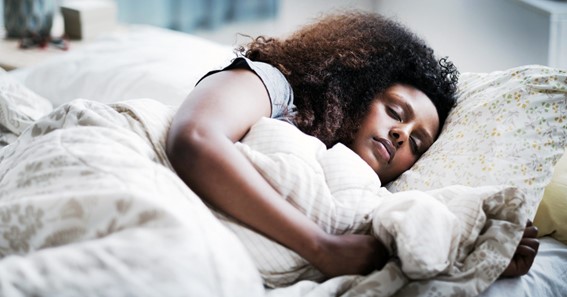Good quality sleep is essential for a healthy life. Lack of sleep or irregular sleeping patterns can adversely affect a person’s cognitive capacities and capabilities. It is however a fact that the need for sleep continues to decline as we age. We go from being a baby and sleeping for most of the day to becoming an adult where we sleep for eight to nine hours a day and often feel that it is more than enough. The decline in the amount of sleep can also be a result of other external factors such as your lifestyle, environment, and medications.
It is therefore extremely important for us to understand how our sleep needs change as we age as well as how to get quality sleep as we grow old. Below are some valuable tips and tricks for people in their 20s, 30s, 40s, and 50s to follow in order to be able to protect themselves from harmful sleeping patterns and to improve their sleep.
Click here – THE BEST PARENTAL CONTROL APPS FOR ANDROID
- Sleeping Pattern in 20s
Sleep researchers suggest that nearly all young and older adults need 8-9 hours of sleep every day. But young adults who are in their 20s are super energetic beings who want to experience life to the fullest. Moreover, the hectic college and university schedules also play a huge role in changing the sleeping needs. Most of the people in their 20s also do odd jobs to earn for themselves and thus only get a few hours of sleep which badly affects all areas of their lives. This constant lack of sleep can cause more problems in the future, studies report.
The key is to not push yourself too hard. Your 20s are no doubt the best time of your life and you might not be this excited about doing different things in future. However, if you do not get proper sleep, you won’t be able to enjoy this time for long. Take out time to exercise as it will not only help you physically, but also improve your sleep. Limit your caffeine intake and set up a sleeping schedule. This will significantly enhance your cognitive capabilities and help you sleep better.
- Sleeping Pattern in 30s
It is very common for people to complain about their worsening sleeping patterns as they enter their 30s. This is due to the fact that most people in their 30s are raising a family or working and feel burdened by the increasing responsibilities. A recent study by researchers at University of California claims that the deep sleep (delta sleep) begins to decline by upto 25 percent when you are in your 30s. Deep sleep notably supports a person’s short and long term memory and is therefore very crucial for learning.
To get proper sleep, all you need to do is follow a sleeping schedule. If you are a parent, making your children follow a routine will also help you in getting quality sleep at night. Don’t forget to do physical activity and eat a balanced and nutritious diet. Increase your water intake and avoid drinking excessive alcohol and caffeine.
Click here – This Is the Best Time to Go to Sleep and Wake Up
- Sleeping Pattern in 40s
Our immune system tends to get weaker as we age and not getting proper sleep in your 40s can be more harmful than ever. The researchers at University of Groningen, Netherlands have found that consequences of irregular sleeping patterns include increased stress levels, mood disorders, cognitive decline, and other cardiovascular diseases. Adults who do not get good quality sleep have high blood pressure and are more prone to hypertension. So no matter how frantic your 40s are, one thing you must not compromise on is your sleep.
An article on spectral analysis of EEG sleep in young and middle-aged adults published in Journal of Neurobiology of Aging reports smaller decay rate of EEG power during NREM sleep in adults aging from 42-56 years due to reduced sleep efficiency. Thus you need to take care of your sleeping needs as much as you can. Try taking a shower before going to bed or do sleeping exercises if you struggle to sleep on time. Lessen fluid intake at nights and try developing good eating habits.
- Sleeping Pattern in 50s
Your 50s might feel like the most tiring age of your life. You feel easily agitated, anxious, and it takes a lot of your energy to get a really small task done. Believe it or not, it has a lot to do with your sleeping pattern. The Sleep Council suggests exercising three days a week for people over 50s. It doesn’t have to be an hour long, just 15-20 minutes are enough for your mental and physical health. Epidemiology studies report that older adults feel the need to nap more than younger and middle-aged adults. This may be a result of poor health conditions as well as loss of non-REM sleep.
Thus if you are frustrated with reduced sleep quality at nights, try sleeping with your windows open, suggests Dr. Kirsch, director of Sleep Medicine at Atrium Health. Do not overwhelm yourself with a long list of chores. Take a warm bath before bed-time and avoid taking longer naps during the day. Try following a sleeping schedule such that you sleep at a specific time and wake up early in the morning. Last but not the least, eat healthy, you NEED it.
It is never too late to start again. If you develop good sleeping habits at a young age, it will notably benefit you in the future. Even the smallest changes such as buying a good quality mattress can help you improve your sleep. For an ultimate guide on finding the best mattress, visit mattressesguide.com.au The goal is to sleep well and remain healthy, keep that in mind!







